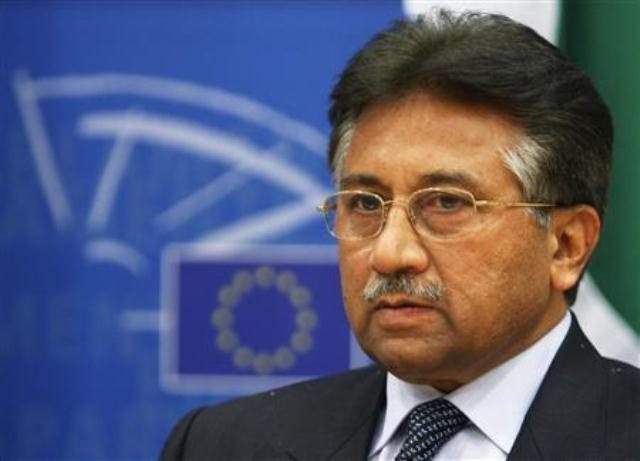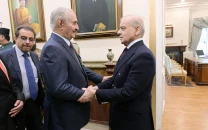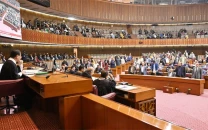CJP seeks report on Musharraf treason trial delays
AGP summoned to apprise SC on what steps have been taken to bring Musharraf back

Former president General (Retd) Pervez Musharraf. PHOTO: REUTERS
A three-judge bench of the apex court, headed by CJP Khosa, on Thursday took notice of the delays in the trial of a six-year-old case filed by lawyer Sheikh Ahsanuddin for the initiation of contempt of court proceedings against the then-PML-N government for not registering a high treason case against Musharraf under Article 6 of the Constitution.
The trial was initiated in November 2013. Prior to becoming chief justice, in 2016, CJP Khosa had directed for the expeditious conclusion of the trial, but Musharraf left the country before recording his statement under CrPC Section 342.
Now the bench has also asked the federal government to appraise it through the attorney general as to what steps have been taken to bringing back the former military ruler. AGP Anwar Mansoor Khan, who was Musharraf counsel in the treason case, has also been asked to appear in person on the next date of hearing.
After the submission of the report, the CJP said the court will now determine whether Musharraf is intentionally avoiding returning Pakistan to record his statement.
No possibility of nuclear war between India and Pakistan: Musharraf
During the hearing on Thursday, when Advocate Taufiq Asif stated that Musharraf left the country in view of a court decision, the chief justice made it clear that Musharraf was not sent abroad by the then-government and not the court.
“The court decision did not say that Musharraf should be sent abroad. His statement can be recorded via Skype, and if he does not give a statement then it will be considered that he is unwilling, and the same can be added by the special court...that he does not want respond,” said the CJP.
The CJP also questioned whether the government can be held hostage by an accused person and the court can become helpless, when he refuses to record his statement, adding that no accused is big or small in the eyes of law.
“It was the government’s job to put Musharraf’s name on the Exit Control List (ECL), and bringing him back was also their job,” the CJP told the court.
Deputy Attorney General Nayyab Gardezi told the bench that special court has been reconstituted and the name of new LHC judge has been notified after the retirement of ex-LHC CJ Yawar Ali.
The apex court also issued notices to the federal government and other respondents. The case was adjourned till March 25.
Case history
The treason case against Musharraf started in November 2013 months after the PML-N government came to power.
Even the Supreme Court, led by incumbent CJP Khosa, had directed to conclude the trial expeditiously.
However, the trial could not be concluded in the last six years due to several reasons.
First, the special court initially directed the federal government to include three more individuals for initiating treason charges against them.
Due to that order, the proceedings remained suspended for a couple of years. Later, the SC set aside the special court order and directed for the conclusion of the trial against Musharraf only.
In the meanwhile, the former army chief went abroad due to medical reasons. He has yet to return. Meanwhile, several judges who were part of the special court have either retired or been elevated to the apex court.
The case remained a reason for civil-military tensions during the PML-N regime. The treason case proceedings have almost halted during the PTI government's tenure.



















COMMENTS
Comments are moderated and generally will be posted if they are on-topic and not abusive.
For more information, please see our Comments FAQ